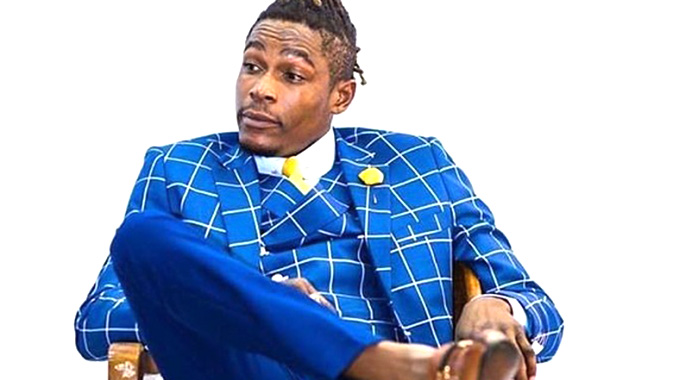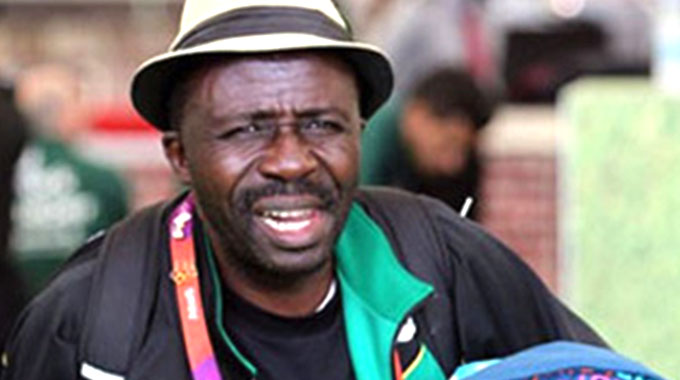The ghetto has lost its Soul

Leroy Dzenga
Herald Reporter
There is something called talent, hard to describe, but easy to feel.
It is like a romantic novel, a display of utopian perfection with minimal effort.
Talent is in itself spiritual; many get called but the choice is always limited to a selected few.
Limited to the likes of Chiwoniso Maraire, Beater Mangete, Soul Musaka and a countable others.
All of them poets, liquid beings who fit in their roles just as the heavens intended. Excessively endowed with what others would kill for, but ominous. These super beings have everything on their side, except time.
They conquer the world, but somehow seem unable to negotiate with the maker for more time.
Everyone lives on borrowed time, but somehow it appears like they acquired theirs from a stern lender.
Perhaps the dosages of their brilliance need to be consumed in moderation. I speculate because the departure of these geniuses, by way of death or misfortune, is hard to rationalise.
The latest to depart from this presently unflattering world is Soul Jah Love (Soul Mukasa).
He was more than a musician; describing him through such mundane words would have been an insult to his essence.
His life story was like a healing wound when pressed, painful, yet beautiful.
Unlike his musical contemporaries, he was not the voice of the voiceless, neither was he anyone’s champion.
Listening to his music was like reading an anthology of loss, growth, strength and spirituality.
His compositions were inward looking, he told his own stories.
Despite focusing on singing about his life, many times without writing, Soul Jah Love’s voice was powerful enough to inspire us, ghetto ‘yuts’, to adopt his pain.
When he reflected on his mother’s life in “Mwana Wa Stembeni”, collectively Stembeni became our mother, despite the many other names our own mothers answered to.
He was that big brother the parents rebuked, but always brought candy.
By no means a role model for any child, but no one could live without a dose of his works in their lives.
His dominance of street lingo is evidence.
Words like “Chibaba”, “Makuruwani” and “Television Ting” were his generous addition to our vocabulary.
From each release, he planted nuances. Everyday greetings now bear objects of his imagination.
Like the songs, he could have kept them within him, but he was not selfish with his work, at least in the early days.
Towards the end, he spent more time far from the spotlight despite the mainstream media relying on his prominence.
Although he spent most of his childhood in Waterfalls, Sauro, as Soul Jah Love was also known, cut his musical teeth in Mbare, the mother of all garrisons in the country.
Mbare is the model ghetto where the grind is informed by a need to change circumstances, beyond everyday survival.
Soul Jah Love was the antidote many youths needed to remain committed to their vision.
“Ndovadyira bhonzo nekuonda kudayi, takamira pamamonya ipapo,” read lyrics from his monster hit “Pamamonya Ipapo”.
It was more than a song, more like an anthem of resilience.
In which he rallied young people to stand up for themselves regardless of the circumstances.
He was not afraid of putting his words in effect, especially when he stood in defence of his art.
In June 2017, at a rally in Sakubva Stadium, one Innocent Hamandishe who was at the time part of the Zanu PF youth league, attempted to embarrass Soul Jah Love by publicly casting aspersions his way after a misunderstanding.
In a turn of phrase and a classic case of converting adversity into opportunity, he responded to a rebuke in which he was belittled into a braggadocio record. From being told “Hausi Chinhu” (you are nothing), to responding with a daring song in which he reminded everyone of his stature.
Scholars like Dr Tanaka Chidora, argue that there was something Marecheran in Soul Jah Love.
Defiant of structure, form and conventions. This was visible in both his music and life. There was a level those who followed his work yearned for him to reach, but it seemed they wanted his commercial success more than he did for himself.
Perhaps the demons he fought from a young age blocked his view of the proverbial bigger picture, or he saw it, but simply chose to ignore it.
Despite giving hope and bringing joy to many people, life in some aspects dealt the chanter perforated cards.
His personal life had difficult moments, he faced thorny circumstances with love interest Bounty Lisa and after a series of on and off break-ups, they finally split in 2019.
Despite having struggled to conceive for many years with Soul Jah Love, Bounty Lisa got pregnant and delivered a child with her new husband.
These and many struggles haunted the artist and his relationship with substances became more profound to the detriment of his career.
Makuruwani had a curious relationship with death. Some of his songs sounded like premonitions laced with regret.
One of his last songs, “Kana Ndafa”, released yesterday, predicted his death.
He pleaded for his memory to be interpreted with caution, he argued that some stories told about him were not true. Just before his death, Soul Jah Love had recorded a number of songs with Shelthang and Tynash of Sunshine studios. If it is true that art imitates life, it would not be too wrong to infer that towards the end of his journey, Makuruwani felt lonely and isolated.
For a man who at any given time had an entourage of not less than 15 friends, this sounded oxymoronic. A rebel by nature, but he had a soft side.
Unpredictable, Soul Jah Love could not be managed by any living mortal.
The best brains in the industry tried and failed, he was a character subordinate only to his instincts.
Promoters were now praying multiple prayers with each booking, hoping he pitches up to perform.
He escaped the public limelight, reporter colleagues would tell tales of how Chibaba failed to honour appointments for stories and interviews.
On occasions, he appeared when he wanted, in true Soul Jah Love fashion.
He did what he wanted when he wanted. He loved to miss appointments, but chose to honour one with the maker.
Do geniuses live long?









Comments